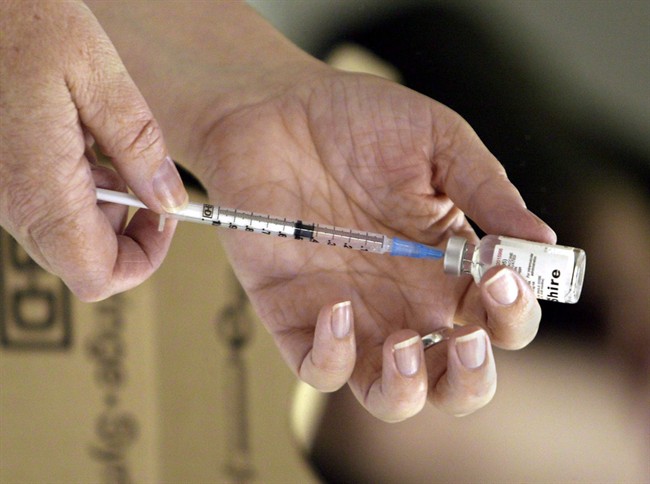Sporadic outbreaks of preventable diseases like measles may have forced more American parents to change their view on vaccines, according to an American survey.

The national poll released Monday by the C.S. Mott’s Children Hospital in Michigan followed up with parents from across the United States that had been asked their views on vaccines last year, and found that more parents now believe immunizations are safer and have more benefits.
The survey found that parents’ views on vaccines had shifted over the year, as more parents now believe they are safe and effective. According to the poll, 34 per cent believe vaccines have more benefit than they did a year ago, 5 per cent think vaccines are less beneficial, and 61 per cent haven’t been swayed one way or the other.

Get weekly health news
READ MORE: 6 vaccination myths debunked
“These news reports may be influencing how parents perceive childhood vaccines across the country,” Matthew M. Davis, M.D., director of the National Poll on Children’s Health said in a press release. “For a quarter to a third of parents to say that their views on the safety and benefits of vaccines have shifted in just a year’s time is quite remarkable.”
There were several outbreaks of measles in Canada in 2014 with cases popping up in Toronto, Niagara, the Lanaudiere region of Quebec, Winnipeg.
And in the United States, hundreds of people were diagnosed with the measles after an outbreak at Disneyland.
READ MORE: Anti-vaccination movement means preventable diseases making a comeback
More people than last year – 25 per cent – think vaccines are safer, and 35 per cent more support vaccination requirements for daycares and schools.
READ MORE: Why is measles so contagious? 5 things you need to know
More people are frightened by measles as well, with 40 per cent of parents saying the risk of being diagnosed with measles is higher than it was last year. Fifteen per cent of the parents surveyed believed the opposite.
California Governor Jerry Brown signed a controversial bill last week striking down the personal belief exemption.








Comments